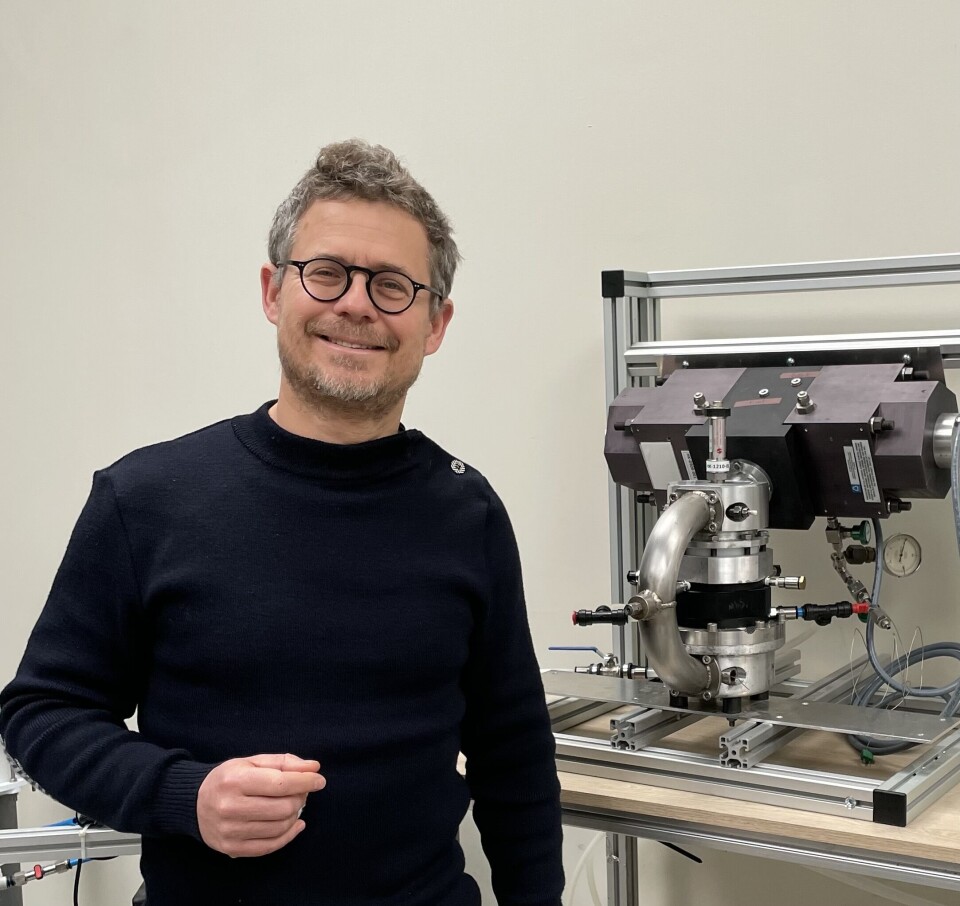-
French innovation leads development of electric planes
Five innovative projects aim to revolutionise air travel by 2026
-
Drive to bring 100% fibre coverage to Brittany
Copper-based internet is being phased out even on remote islands
-
Rules change for dog walking in France from April
Here is how to ensure you and your dog remain within the rules and avoid fines
New French-invented green heat pump warms homes with sound waves
Developper Cédric François says it took 20 years of research to produce and is ecological, economical and easy to use

A new core for heat pumps that uses sound waves to provide heating for homes has been developed in France.
Heat pumps currently use a large compressor, similar to those in refrigerators, to compress gas and heat it up.
Air from outside is then drawn over this tank and warmed enough to raise the temperature of radiators.
A new system developed by Cédric François replaces the compressor with a small unit with a patented sound generator at its core, sending out a noise in the 100Hz to 150Hz range. “This is the sound you get from the keys on the far left of a piano, the deep notes,” he said.
“But from the outside of the unit you hear nothing because the sound, which is very powerful, is also strictly focused.”
The sound passes through a neutral gas such as helium, sending waves through it to compress and then relax it.
“As the gas compresses, it warms up, enough to heat a heat exchanger and so heat water for radiators,” he said.
It took more than 20 years of research, first by Mr François’s father, who was a university researcher in thermoacoustics, and then by Mr Francois himself, to develop the system.
Read more: France plans to boost greener home wood burners with extra grants
His company, Equium, is looking to have the sound heat generators manufactured and installed in heat pumps made by specialist companies.
“The advantages are many, not least that we do not need the difficult-to-handle gases which are at the heart of conventional heat pumps.
“Control is also much more precise, because you can turn the heat output up or down like you turn the sound up and down on a stereo. And there are no moving parts, so the expected life of the core will go up from the present 10 years to 30, at least.”
The new heat pumps will still require outside fans to pass air over the heat exchanger, but the absence of the compressor means that noise from the heat pump, one of their main disadvantages, will be much less.
It is hoped that the first heat pumps using the new system will be on the market next year.
“Heat pumps are being pushed as the new, green way of heating homes but they are not without their problems, especially with the gases at their core, which are bad for global warming and so need careful handling,” he said.
“This is a significant improvement in their design and I am sure it is a good time for the technology to take off.”
The company has raised €3 million to bring the product to market, and the first pumps are likely to be made by French company Arkteos. Prices should be similar to those for conventional heat pumps.
Related stories:
Households could save up to €180 a year with new electricity app
The ‘ideal town of tomorrow’ imagined by the French public
Household bills soar by €64 a month in a year, new French study shows
























